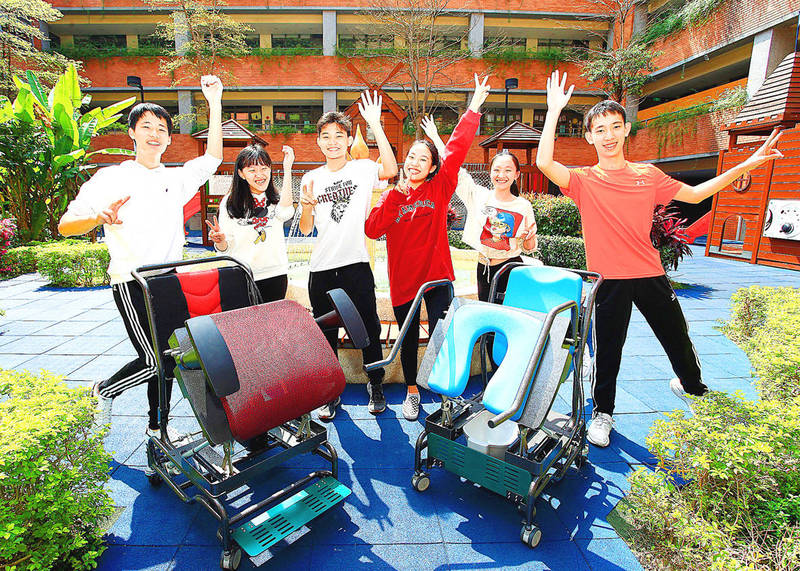《TAIPEI TIMES》Taiwanese team wins 48 awards at invention contest

Students from Taipei Fuhsing Private School pose for a photograph with electronic height-adjustable toilet seats that won a gold medal at this year’s Moscow International Salon of Inventions and Innovative Technologies. Photo courtesy of the Chinese Innovation & Invention Society
By Lo Chi and William Hetherington / Staff reporter, with staff writer
A Taiwanese team competing at the 24th Moscow International Salon of Inventions and Innovative Technologies won 35 gold, 10 silver and three bronze awards for their inventions, event organizer Archimedes announced yesterday.
The competition, held from March 23 to 26, was joined remotely by international participants due to the COVID-19 pandemic, the organizer said, adding that the Taiwanese team entered 48 inventions, and placed second overall behind the host, Russia.
The team’s leader, Chinese Innovation and Invention Society director-general Wu Chih-yao (吳智堯), said they competed against participants from 18 countries who collectively entered more than 600 inventions.
One of team’s gold-winning inventions was a material that breaks down naturally and can be used to make masks.
The material — made in response to the environmental impact of non-biodegradable masks, which have grown prevalent due to the pandemic — was developed by students at the National Yunlin University of Science and Technology, led by professor Nien Yu-hsun (粘譽薰).
The material uses electrospun carbon nanofibers that can block 99 percent of fine particulate matter smaller than 2.5 micrometers, Nien said.
Another gold-winning invention — developed by students at National Chin-Yi University of Technology, led by professor Chen Tsung-chia (陳聰嘉) — was a battery-less “powered” bicycle.
“It takes less force to propel and is lighter than an electric bicycle. The concentration and release of force is all done mechanically,” Chen said.
The bicycle is pedaled manually like a regular bicycle, but its mechanical structure stores energy from rotation of the paddles, as well as the vibrations generated when riding, and uses it to propel the bicycle forward, he said.
The team’s youngest members — junior-high school students from Taipei Fuhsing Private School — won gold for their motorized toilet seat that helps elderly people more easily use the toilet.
Other gold-winning inventions included a robot plumber that can inspect pipes and remove blockages, developed by engineering students at Cheng Shiu University, and bismuth titanate crystals that can be used in negative capacitance transistors, developed by engineering students at Hsiuping University of Science and Technology.
新聞來源:TAIPEI TIMES

















